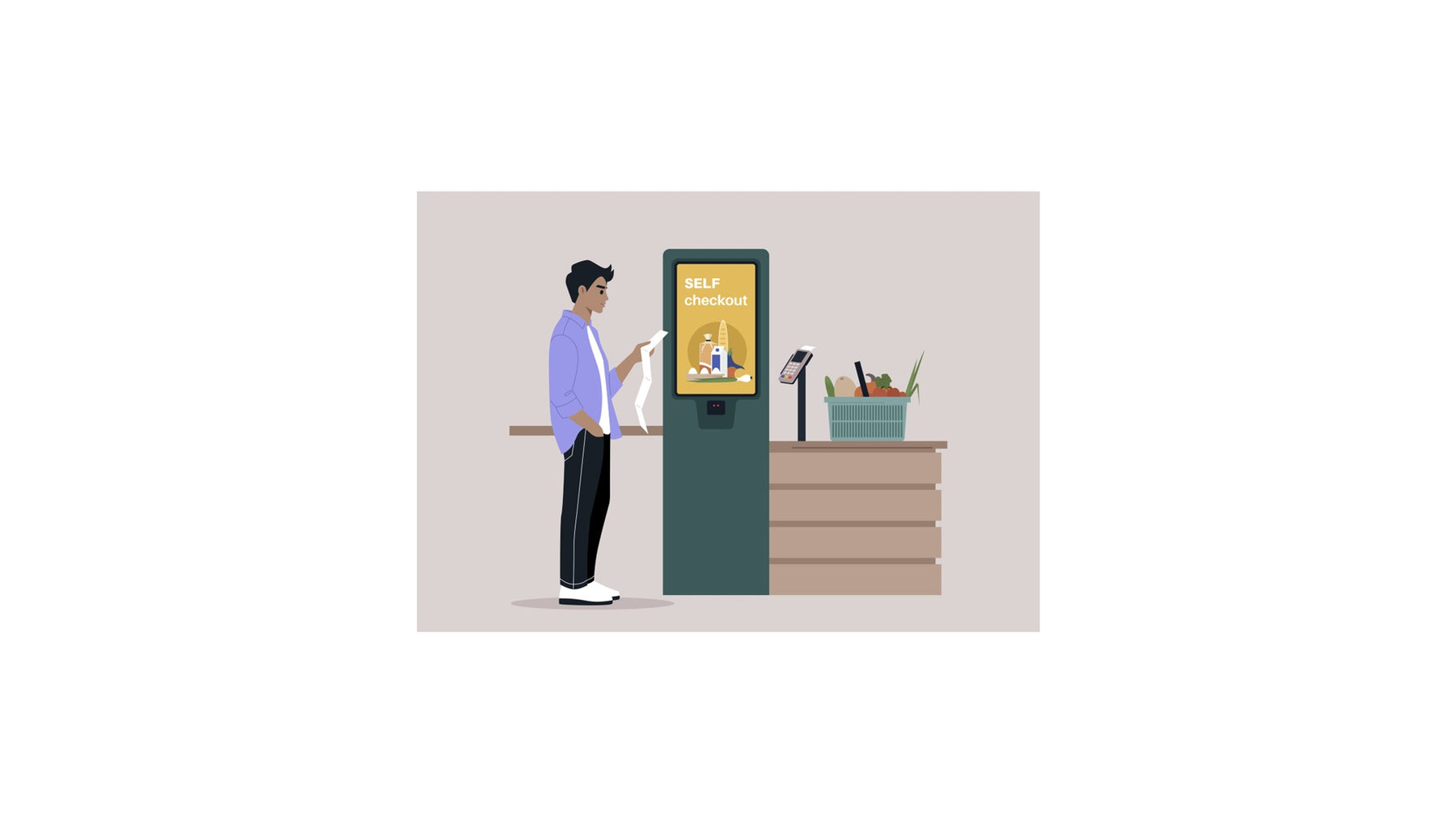Email: ashley@numa-tech.com
Email: sales@numa-tech.com

Self-checkout kiosks have emerged as a game-changer in the retail industry, offering a win-win scenario for both customers and retailers. These automated systems empower shoppers to take control of their shopping experience while providing retailers with enhanced efficiency and cost savings. In this comprehensive article, we'll explore the myriad benefits that self-checkout kiosks bring to the table and how they contribute to a positive retail environment.
Empowering Customer Convenience
One of the primary advantages of self-checkout kiosks is the convenience they offer to customers. Shoppers no longer need to wait in long queues or rely solely on cashier-assisted checkout. Instead, they can scan and pay for their items independently, saving valuable time and streamlining the checkout process. This self-service approach resonates well with today's tech-savvy and time-conscious consumers who value efficiency and convenience in their shopping experiences.

Moreover, self-checkout kiosks provide a sense of control and autonomy to customers. They can carefully review their purchases, apply discounts or loyalty points, and complete transactions at their own pace. This autonomy not only enhances customer satisfaction but also reduces instances of errors or misunderstandings commonly associated with traditional checkout processes.
Operational Efficiency for Retailers
For retailers, self-checkout kiosks represent a significant boost in operational efficiency. These kiosks are designed to handle multiple transactions simultaneously, reducing wait times and congestion at checkout counters. This improved throughput leads to higher customer turnover rates, especially during peak hours or busy periods.

Additionally, self-checkout kiosks enable retailers to reallocate staff resources more effectively. Instead of dedicating multiple employees solely to cashier duties, businesses can deploy staff to other critical areas such as customer assistance, restocking shelves, or managing inventory. This strategic deployment of personnel optimizes labor costs and improves overall store operations.
Cost Savings and Scalability
The implementation of self-checkout kiosks also translates into tangible cost savings for retailers. By automating the checkout process, businesses can reduce the need for manual cashiers, thereby lowering labor expenses in the long run. Moreover, self-checkout kiosks require minimal maintenance and upkeep compared to traditional checkout lanes, further contributing to cost efficiency.
Furthermore, self-checkout systems offer scalability benefits to retailers. As consumer demand fluctuates or new store locations are established, businesses can easily expand or adjust the number of kiosks to meet changing needs. This scalability ensures that retailers can adapt to market dynamics while maintaining a seamless and efficient checkout experience for customers.
Enhanced Data Insights and Personalization
Another advantage of self-checkout kiosks is the wealth of data they generate. These systems capture valuable information about customer purchasing patterns, popular products, and transaction trends. Retailers can leverage this data to gain insights into consumer behavior, optimize inventory management, and tailor marketing strategies for targeted personalization.
For instance, retailers can analyze which products are frequently purchased together, enabling them to create bundled promotions or cross-selling opportunities. Additionally, self-checkout kiosks can integrate with loyalty programs, allowing customers to earn rewards or receive personalized discounts based on their shopping history. This data-driven approach not only enhances the shopping experience but also fosters customer loyalty and repeat business.
Security and Fraud Prevention
Self-checkout kiosks are equipped with robust security features to safeguard transactions and prevent fraud. These systems utilize advanced encryption protocols and secure payment gateways to protect sensitive customer information during checkout. Moreover, built-in sensors and surveillance technologies help detect and deter unauthorized activities such as theft or tampering.
By enhancing security measures, self-checkout kiosks instill trust and confidence among customers, encouraging them to embrace digital payment methods without concerns about privacy or security breaches. Retailers benefit from reduced instances of fraud and shrinkage, ensuring a secure retail environment for both shoppers and business operations.
Adapting to Changing Consumer Preferences
In today's fast-paced retail landscape, self-checkout kiosks play a crucial role in meeting evolving consumer preferences and expectations. With an increasing emphasis on contactless experiences and digital convenience, these kiosks offer a seamless and hygienic checkout alternative, especially in light of global health concerns.
Furthermore, self-checkout kiosks cater to diverse customer demographics, including tech-savvy millennials and older generations embracing digital transformation. The intuitive interface and user-friendly design of these systems ensure accessibility for all customers, regardless of their technological proficiency or familiarity with self-service technologies.
NUMA DT-50, the best partner for self-checkout kiosks
Must know product features

Conclusion: Driving Retail Innovation
In conclusion, self-checkout kiosks represent a win-win solution for both customers and retailers, revolutionizing the retail landscape with their convenience, efficiency, and versatility. By empowering customers with control over their shopping experience and enabling retailers to streamline operations and drive cost savings, these kiosks play a pivotal role in driving retail innovation and enhancing overall customer satisfaction.
As technology continues to evolve, we can expect further advancements in self-checkout systems, such as integration with mobile payment platforms, enhanced AI-driven analytics, and seamless omnichannel experiences. By embracing these innovations and leveraging the benefits of self-checkout kiosks, retailers can stay competitive, meet consumer demands, and deliver exceptional retail experiences in the digital age.
Find out more information of NUMA scanners, please visit NUMA website https://www.numa-tech.com/. Or please send your inquiry to sales@numa-tech.com for proposal and quote.